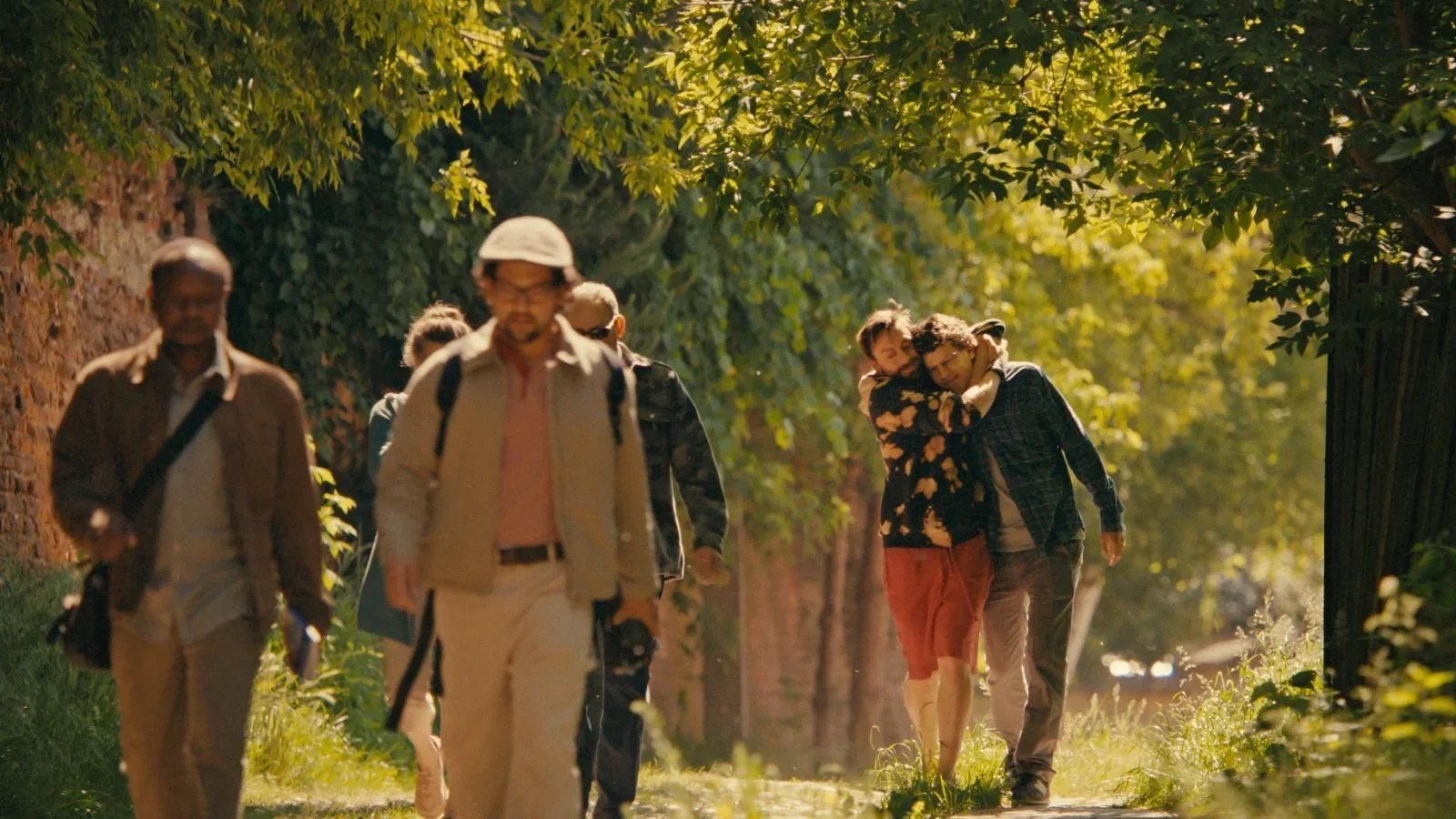A Real Pain
Director: Jesse Eisenberg
2024
27 March 2025
See
David (Jesse Eisenberg) and Benji (Kieran Culkan) are coiusins who have drifted. A classic odd couple, one is an introvert and the other an extravert, they’re brought back together by the death of their grandma, a holocaust survivor. She left money for them in her will to go and visit Poland together, where she not only survived, but lived, and reconnect with each other in the process.
Think
Opposites attract and repel, David is anxious and neurotic. The film stats with him incessantly sending voice messages to Beji en route to the airport. But he was early, there was nothing to worry about. Except everything else that happens on the trip. It becomes apparent Benji is a hot mess as they travel and join a tour group lead by the incredible Will Sharpe as James, an Oxford scholar on Eastern Europe with a particular interest in the Jewish experience, despite not being one himself. Starting in Warsaw, they retrace the Shoah, place of the holocaust, where Babcia Dory, whopse presence is felt through her absence. She was from Lodz, and survived Majdanek concentration camp. Also part of the tour group are Marcia (Jennifer Grey) a divorcee whose mother was a survivor, and Elage (Kurt Egyiawan) a Rwandan genocide survivor and convert to Judaism. They add value to the walk and talk scenes making them more about what happens in between the sites and shrines, sharing and caring in a way that rings true about places being people you’re there with. The shots showing old and new Poland too, buildings like PKiN contrasted with soviet apartment buildings, monuments to Jews and Poles who perished, and also the sheitels between the cracks of crumbly villages shining through with Jewish history being everywhere between.
Feel
Eisenberg balances the tenderness of the cousins humour, smoking weed on rooftops, getting off at the wrong station on trains, teasing each other playfully and painfully with the trauma of visiting concentration camps. Scenes speak louder than words can, in some silence sings devastatingly, but the dialouge is smart and deft too. Benji sees Marcia, and says to Dave:
“She has a deep sadness in her eyes,” says Benji.
“You could tell that from the introductions?” says David.
“Of course, I’m going to go talk to her.”
“Maybe she wants to be alone.”
“Nobody wants to be alone… hey, why are you walking by yourself like a fuckin’ loser?”
Or better yet a scene reminiscent of the Bill Wither’s song Grandma’s hands.
Benji paying Dave a weird compliment that he has nice feet, like Babcia Dory’s. How she would always wear plastic slippers indoors. And how David reminds Benji of her.
The awkwardness and disconnect to suffering while in close proximity to it comes up time and again. The privilege of being third generation, knowing what happened to their family and yet being removed from it. Staying in fancy hotels, eating fancy food, riding first class. But it can’t always be ignored or avoided, and Benji says the quiet part out loud.
At a Jewish cemetery placing stones on the grave of Jacob Levi, the oldest Jewish headstone in Poland, and who rests there being the subject of Books of Jacob by Olga Tokarczuk, a Nobel laureate for literature. Benji gives James the feedback of too many facts and figures, not enough feels. They hadn’t met a single Polish person or interacted with the culture.
Then when it’s just the cousins visiting Babcia Dory’s home, number 25 in a little lane in Lodz, each place a stone there. There’s miscommunication with a neighbour made better by the next generation interpreting between Polish and English, an acknowledgment of who lived there in the past, and respect for who resides there now. Both are true and well balanced.
The cousins are on different paths, but here and now they’re together. Their love and rivalry best comes up when Benji leaves the table at a group dinner in a Jewish restaurant and Dave divulges: “I love him, and I hate him. I want to kill him, and I want to be him.”
Culkan deservedly won the best supporting actor Oscar. And Eisenberg his Polish citizenship through heritage. He also earned it with what he was able to show and say with this film.
